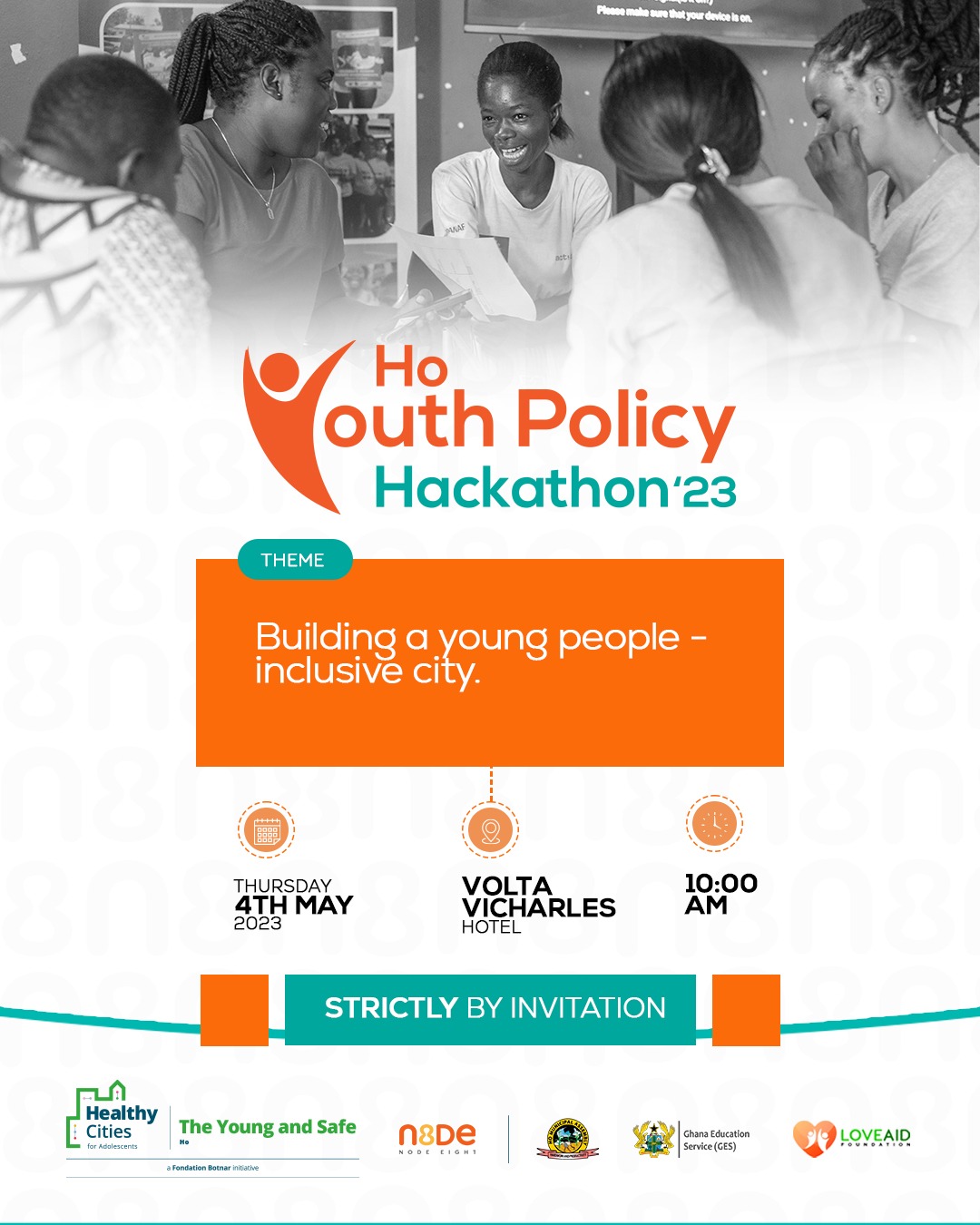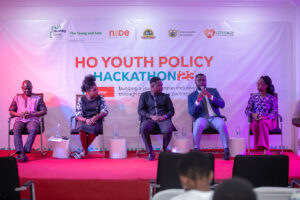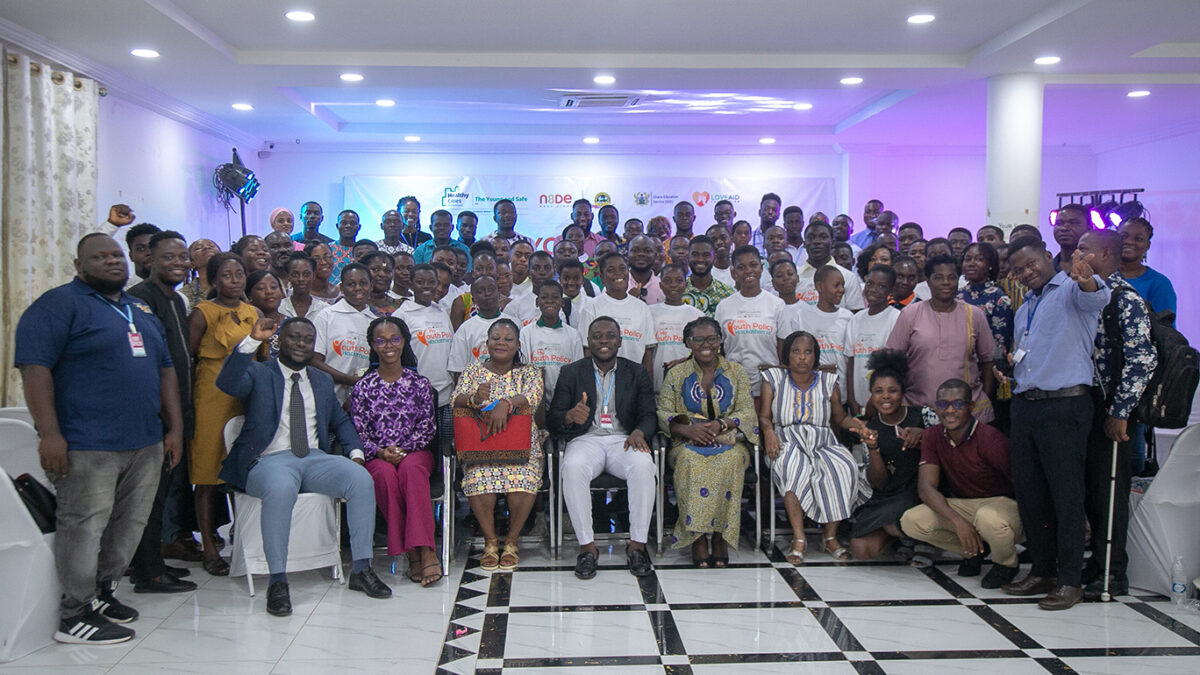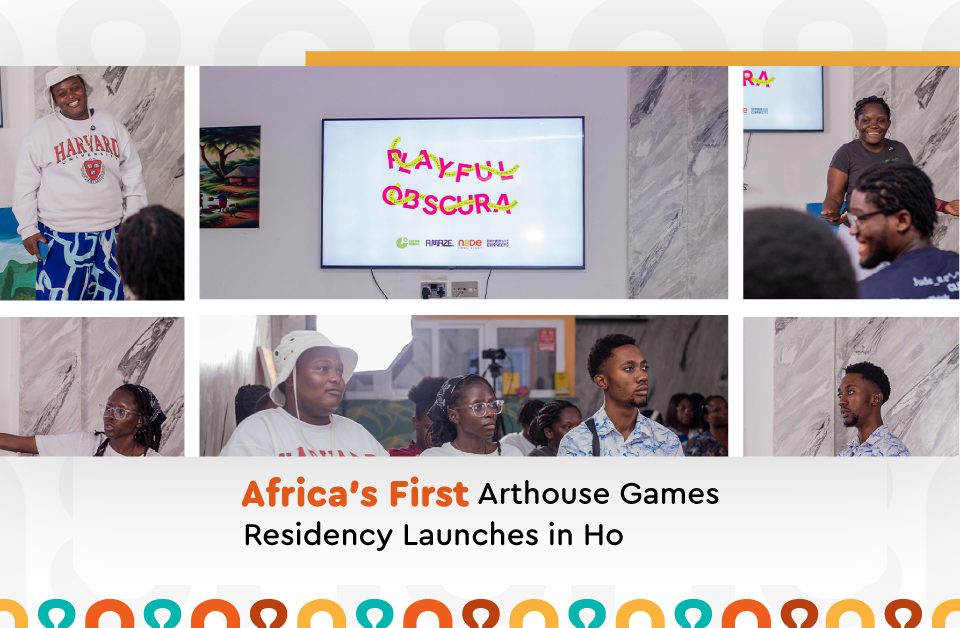
Ho Youth Policy Hackathon: Creating a Youth-Friendly City
May 1, 2023
Last Friday Hangout Spotlight Series: A sit-down with 6ca.
July 11, 2023On May 4, 2023, the inaugural Ho Youth Policy Hackathon successfully brought together policymakers, students, community leaders, youth advocates, and local organization representatives for a problem and ideas hack fest. This one-day event was focused on generating inputs toward building a young people-inclusive city in Ho.
The event was organized on the ideals of using World Café and BarCamp approaches to source local input from young people who are deemed as direct beneficiaries of an inclusive city.
The Managing Director of Node Eight, Mr. Courage Asase, kicked off the event with a warm welcome to all participants. He expressed his excitement about the potential impact of the hackathon, noting that it was a crucial step towards achieving a more inclusive city for young people. In his keynote address, the Ho Municipal Chief Executive (MCE), Mr. Divine R. K. Bosson, emphasized the importance of public-private partnerships that helps address the challenges faced by the youthful population in the municipality. He recognized that getting young people to build their skillsets and involving young people in decision-making processes is essential for improving their employability.
Mr. Bosson also acknowledged that collaboration between the private and public sectors is crucial in creating a conducive environment that promotes the welfare, safety, and security of young people. “It is widely accepted that young people are the future of our nation, and their energy, creativity, and dynamism are crucial in driving economic growth and social development. To ensure our young people can thrive, we must create an environment that promotes their welfare, safety, and security.” Hon. Bosson reiterated.
Strengthening Youth Representation and Participation in City Governance: Perspectives from the “Young and Safe” Project.
The round table discussion, led by Mr. Brian Dzansi, Co-founder of Node Eight, focused on The Young and Safe project. This project aims to address issues such as creating economic opportunities with digital innovations, spaces for discovery, healthy living, and youth participation in city governance.
The panelists, selected from members of the consortium including Ghana Education Service- Ho Municipal, LoveAid Foundation, Node Eight, and the Ho Municipal Assembly, highlighted the role of various stakeholders in increasing youth representation in city governance and promoting digital innovation skills development.
According to Mr. Elvis Kofi Bomasah, Assistant Statistician at the Ghana Education Service, Ho Municipal, the role of the GES in The Young and Safe project is to provide direct access to the young population in the various educational and technical institutions. Mr. Wahabu Zakari reiterated the local assembly’s commitment to ensure a better representation of young people in decision-making processes. Speaking on the sexual and reproductive rights of the youth, Princess Lovia Tetteh expressed her outfit’s plans to engage the expertise of direct stakeholders, including the Planned Parenthood Association of Ghana and the University of Health and Allied Sciences, in organizing sexual, reproductive, and mental health boot camps and outreaches.

Outcomes of The Young and Safe Project.
The Ho youth policy hackathon is part of the wider activities of the Young and Safe project. A three-year program implementation under the Healthy Cities for Adolescents, funded by Foundation Botnar for second-tier cities across the world.
By the end of the three-year project, the organizers hope to achieve several tangible results, including assertive young people, building their creative capabilities, and involved in all sectors of development of the municipality; increased employability of young people; increased capacity of young people in technology and innovation; active participation of young people in decision-making and healthy choices relating to their holistic development; a proportion of youth represented in the local assembly; and a youth-friendly park.
Stakeholders Brainstorm Solutions to Challenges Faced by Young People in Ho.
Participants in the hackathon used World Café and BarCamp methods to identify key challenges affecting young people in areas such as happiness, youth participation in governance, mental health, employability, and sexual and reproductive health. Among the most pressing issues identified by employability participants was the lack of the requisite skill set.
Overall, the breakout sessions allowed for a deeper exploration of the challenges facing young people and brainstorming lasting solutions. Participants expressed excitement about the potential for collaboration among stakeholders.
The Ho Youth Policy Hackathon demonstrated the importance of collaboration among stakeholders in creating an enabling environment for young people to thrive. By leveraging the strengths of each party, public-private partnerships can create a more enabling environment that promotes young people’s growth and development.










